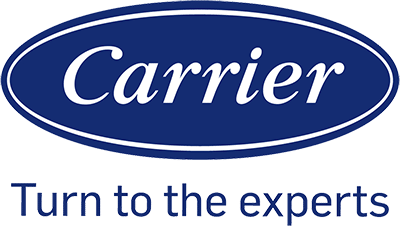Key Benefits of Professional Central Air Conditioning Installation

Getting our central air conditioning installed by skilled professionals makes a big difference. This ensures our system works as it should, provides steady comfort, and helps us save money over time.
Optimal System Efficiency
When we let professionals handle our AC installation, they make sure the system is set up for maximum efficiency. They know how to correctly size the unit for our home, avoiding problems like short cycling or uneven cooling.
Correct sizing prevents energy waste and helps the air conditioning run at its best. Incorrect installations can cause the system to work harder, using more electricity and wearing out faster.
We can rely on expert installers to position the unit and ducts properly, allowing for even airflow and consistent cooling throughout our space. This attention to detail means our system can provide optimal performance and help keep our utility bills down.
Enhanced Comfort and Reliable Cooling
Professional AC installation plays a big role in our everyday comfort. When the system is installed by trained technicians, every room in our home gets cooled evenly, with no hot or cold spots.
Reliable cooling means we do not have to worry about sudden breakdowns or noise from the system. Skilled installers check for proper seals, correct thermostat placement, and well-balanced airflow, making sure each part works as it should.
We end up with a central air conditioning system that is both quiet and dependable, creating a better living environment for us and our families.
Long-Term Cost Savings
A major benefit of professional AC installation is the money we save over time. Precise, proper installation helps avoid costly repairs because everything is set up right from the start.
Energy efficiency leads to lower utility bills. With our system running as it should, it uses less energy to keep our house cool. This reduces the strain on the unit, often making it last longer.
We also avoid the cost of early replacement or frequent service visits, thanks to a strong and reliable setup. Investing in professional services at the beginning often means fewer expenses down the road.
Improved Indoor Air Quality
How our air conditioning system is installed affects more than just comfort; it also impacts the air we breathe. With expert installation, proper filtration and ventilation are ensured from the start. Skilled technicians seal all duct joints and use the correct filters, reducing dust, pollen, and other particles that can enter the air. This helps control allergens and keeps our indoor air quality at a healthy level.
We notice less humidity and more balanced airflow, making our homes more pleasant and healthier to live in. Steps like using the recommended filter type and regular maintenance checks are part of a professional approach to better air.
The Role of Qualified Technicians in Air Conditioning Installation

We rely on skilled professionals for air conditioning installation to help us avoid costly mistakes and safety risks. Their experience, training, and commitment to industry rules make a big difference in how well and safely our systems work.
Expertise and Certification Standards
Certified technicians and professional installers must follow strict training requirements to earn their credentials. We can expect them to have completed programs like EPA Section 608 certification, NATE certification, or factory training from equipment manufacturers. This knowledge helps them keep up with the newest air conditioning systems and industry changes.
Hiring an expert technician helps make sure our installation meets local codes and national standards. These standards, such as those set by the Air Conditioning Contractors of America (ACCA), ensure safe and reliable operation. We reduce the chance of future problems and costly repairs by choosing someone with the proper certifications.
A qualified technician stays updated on new technology, including smart thermostats and energy-efficient systems. This allows us to get the most out of advanced features and longer-lasting equipment.
Custom System Selection and Proper Sizing
One important part of professional HVAC installation is choosing the right system for our home. Skilled technicians use detailed measurements, called load calculations, to find the proper sizing for our space. This prevents the problems of units that are too big or too small.
Proper sizing also helps with energy efficiency and even cooling. An expert will look at room sizes, insulation, windows, and local climate. This tailored process means our air conditioning system delivers comfort while saving energy and lowering utility bills.
A professional installer also knows about different system brands and models. This helps us pick the best equipment for our needs and budget, ensuring long-term satisfaction and performance.
Ensuring Safe Electrical and Refrigerant Handling
Air conditioning systems require careful handling of electrical wiring and refrigerants, which can be hazardous if not managed correctly. Professional technicians are trained to avoid electrical hazards such as short circuits or fire risks during installation. They safely connect wiring and ensure that all parts are grounded as required by code.
Certified technicians also handle refrigerants, like R-410A, following strict safety guidelines to prevent leaks. Mishandling refrigerants can harm the environment and threaten our health. Qualified installers use specialized tools to check for leaks and charge the system with the correct amount.
By trusting skilled professionals, we protect our property and the people inside. We also comply with legal and environmental requirements, as regulations for refrigerant use and disposal get stricter over time.
Potential Risks of DIY or Unprofessional AC Installation
Installing central air conditioning without the right knowledge or training can cause serious problems. Issues may include system malfunctions, greater energy use, and unwanted repair costs.
System Malfunctions and Inadequate Cooling
When we install an AC system without professional help, we risk making mistakes during setup. Common errors include incorrect wiring, poor ductwork connections, or improper refrigerant levels. These mistakes can cause our home to feel uncomfortable because certain rooms may not get enough cooling.
System malfunctions are also more likely with unprofessional installation. For example, the compressor could fail, or the thermostat might not work as it should. In some cases, DIY installation even increases the risk of electrical hazards, such as shorts or faulty connections, which can create safety issues for our family.
We might also see our AC system cycling on and off too often, or running longer than needed. These problems make it harder for the unit to keep the house at a steady temperature.
Higher Energy Consumption and Bills
A poorly installed system usually works harder to cool our home. When the AC has to run longer or more often because of leaks, blockages, or bad setup, it uses much more energy.
This means our electricity bills go up each month. Lost cool air and overworked parts waste power and increase costs. A proper installation helps the system run smoothly and uses just the right amount of energy.
We can use a simple table to compare energy costs:
| Type of Installation | Average Monthly Bill |
|---|---|
| Professional | $100 |
| DIY/Unprofessional | $140 |
Even a small mistake in installation can make a big difference in our bills over the system’s lifetime.
Voided Warranties and Costly Repairs
Many manufacturers require that licensed professionals install central air conditioning for the warranty to be valid. If we do it ourselves or hire someone unqualified, we could void the warranty right away.
Without a valid warranty, we have to pay for repairs that would have been covered. Typical fixes—like replacing the compressor or handling a refrigerant leak can each cost hundreds or even thousands of dollars.
We also risk missing the signs of hidden issues. Unprofessional installation makes it more likely that small problems will grow into major repairs over time. This puts us at greater risk for sudden system failure and expensive emergency service.
Factors Impacting the Effectiveness of Central Air Conditioning Installation
When we install a central air conditioning system, several key factors can affect how well it works. Good duct design, safe electrical work, the right refrigerant level, and proper ventilation make a big difference in comfort, efficiency, and safety.
Proper Ductwork and Insulation
Well-designed ductwork is essential for moving air throughout our homes. If the ducts are too small, too large, or have leaks, air will not flow correctly. This can cause uneven cooling and wasted energy. We should always make sure the duct layout matches the needs of the home and the size of the air conditioner.
Insulation around the ductwork is just as important. Without proper insulation, cool air can escape or warm air can get in before reaching our rooms. This forces the air conditioning system to work harder, increasing energy bills and wear. Sealing and insulating ducts helps maintain the temperature of air as it moves.
Benefits of correct ductwork and insulation:
- Even temperature throughout the home
- Lower energy costs
- Longer system life
Accurate Electrical Connections
Electrical connections must be safely and correctly installed during any HVAC installation. Unsecured or incorrect wiring can lead to breakdowns, short circuits, or even fire hazards. We should have a licensed electrician handle all connections for the central air conditioner.
The thermostat, blower motor, and compressor all need consistent power. If voltage is unstable or wires are not connected right, the air conditioning system can stop working. Regular inspections also help spot problems early, which reduces the risk of damage.
Important electrical components:
| Component | Purpose |
|---|---|
| Thermostat | Controls cooling cycles |
| Blower motor | Circulates air |
| Compressor | Moves refrigerant through system |
Correct Refrigerant Levels and Ventilation
Setting the correct refrigerant level during installation is crucial. Too little refrigerant makes the system work harder, cooling less and using more energy. Too much can also strain parts and cause breakdowns. We need a technician trained in air conditioner installation to charge refrigerant to the manufacturer’s specs.
Ventilation is another important factor. Proper ventilation helps remove heat from indoor spaces. Without enough airflow, the system can overheat, cause mold, or lower air quality. Clear vents and clean filters support good air movement and efficient cooling.
Key steps for success:
- Check refrigerant with proper gauges
- Install and test vents in each area
- Replace air filters as needed
Long-Term Maintenance and Performance Assurance
Regular service and attention help our central air conditioning systems last longer and perform better. Taking care of small issues early and keeping the system clean is important for keeping our indoor environment healthy and efficient.
Scheduled AC Maintenance and Cleaning
We schedule AC maintenance to help our systems run at peak efficiency. By checking filters, coils, and ductwork, we prevent dust and allergens from building up.
Regular cleaning improves our indoor air quality. Clean ducts mean fewer allergens and better airflow. A dirty system works harder, costing more energy and money.
Changing filters at least every three months helps avoid clogs. We also schedule duct cleaning to remove trapped dust and particles. This keeps air moving and reduces the risk of system strain.
Regular inspections also include checking refrigerant levels and making sure all components are working as they should. This helps us avoid larger issues later.
Early Detection of Wear and Tear
Spotting worn parts early prevents bigger problems. During maintenance, we look for rust, cracks, leaks, and other damage.
Common signs of wear include odd noises, weak airflow, or changes in room temperature. If we find these early, we can fix them before they affect the whole system.
Regular checkups help us spot small broken parts before they cause system failures. This keeps our air conditioner working longer and avoids emergency repairs.
We keep a maintenance log to track what has been fixed or replaced each visit. This helps us stay ahead of problems and keeps our system in top shape.
Maintaining Peak System Performance
Maintaining high performance means keeping all parts in good condition. Inspections and cleaning remove the dust and dirt that slow down our system.
A well-maintained AC needs less energy to cool our home. This saves money and makes our indoor environment more comfortable.
Customer satisfaction increases when rooms stay cool and comfortable even during heat waves. Our air quality improves because filters and ducts are clean.
Peak efficiency also means our system lasts longer. By caring for the AC, we avoid costly breakdowns and extend its lifespan. A reliable system is one we can count on for many years.




